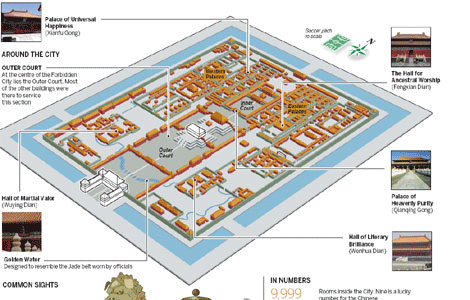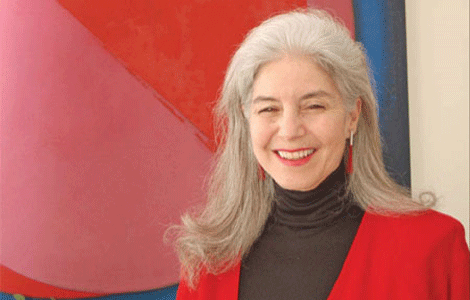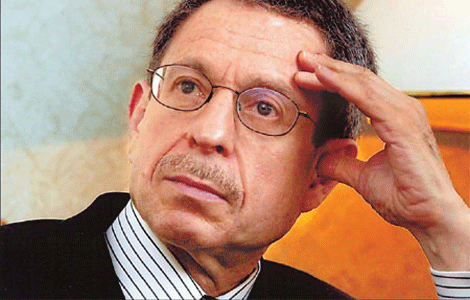Op-Ed Contributors
The implication of Bernanke's speech
Updated: 2011-09-05 14:02
By Wei Liang (chinadaily.com.cn)
Ben Bernanke once again made a speech on the US economic outlook at the meeting of world's central banks held in Jackson, Wyoming, US on August 26. Different from last year, the speech did not imply clearly about the new arrival of quantitative easing, but still triggered a rebound of the US stock market. The meaning of his speech is therefore worth a thought.
First, the speech aims at calming the market panic. Annual meeting of world's central banks once again held under a situation that the market is being fragile. Nearly a month ago, a series of bad news made negative effects on the world and US economies. First is the rise of the US debt ceiling, then is the Standard and Poor's cut on the US credit rating, followed by banking sectors in the US and Europe falling into frequent emergency trap. The world market is therefore like playing roller coaster every day.
Whether the US Federal Reserves can control the critical situation is the most expected information that the market wants to know, and it is even more important than technical operations of the quantitative easing. Bernanke therefore gives such a justification at the beginning of his speech: although the US economic recovery is slow and unstable, it is much better than the period of financial crisis. Meanwhile, as the US manufacturing sector starts to grow; trade deficit is gradually narrowing; household savings is increasing; and the prices of commodity goods began to fall, the US economy is recovering slowly. Bernanke's statement on the current economic situation shows that the turmoil is temporary, and the direction of US economic recovery hasn't changed.
Second, his speech indicates the US Federal Reserves couldn't control the critical situation by itself alone. As assurance can only avoid market volatility, it won't boost the economy. Bernanke as an economist started from researching the "Great Depression", he must know the truth. Thus, he constantly hints in his speech: “The US Federal Reserves is not omnipotent”.
Bernanke said the current policy the US Federal Reserves uses is a combination of alternative policies, and the way to use it requires in-depth discussion. This suggests there might be a huge side effect in the existing standby policy. If it is not a compelling situation, the US Federal Reserves will not throw it out. As Bernanke said that the use of policy tools shouldn't leave the US economy a big wound.
In his speech, Bernanke said the word of “finance” for more than 20 times, and politely criticized the current model on deficit reduction, suggesting that such a behavior has affected the US economy. This is actually expressing the US Federal Reserves' stand, indicating fiscal policy must play a sufficient role in resolving economic issues.
Because the recovery pattern is different from previous cases, the US Federal Reserve could not cope with the situation easily this time. After reviewing the experience of recovering economy in the World War II, Bernanke said it is difficult to rely on the real estate sector to boost the economy this time. Instead, credit and financing are dragged down from the real estate market's downturn. This means even if the US Federal Reserves continues to lower financing costs, it still will be difficult to help the real estate industry.
About the new round of the quantitative easing, Bernanke didn't mention a single word in his speech. The market speculation is that the US will extend the Open Market Committee session in late September, which will be one of the signals of the QE3's arrival. Therefore, although there is no news for QE3 in Bernanke's speech, it could be a good news for the market. According to a few words from Bernanke and other Fed officials' statements, QE3 may arrive in September.
Bernanke said the US Federal Reserves expected the inflation rate to be below 2 percent in the next few quarters. However, after two rounds of quantitative easing, high inflation on a global scale is one of the inevitable effects of this policy. The US CPI increased 3.6 percent in July, and the core CPI rose 1.8 percent. Under such circumstances, re-opening the door to quantitative easing is inconsistent with the US Federal Reserves' policy. Thus, the US Federal Reserves is inclined to adopt the method of inflation-control under current economic climate. In late September, the US Federal Reserves is going to extend Open Market Committee session; perhaps this aims at further assessing the inflation outlook, and to develop appropriate simulative monetary policy to test the water. And whether to launch quantitative easing will be decided on the result of “water-testing”.
Also, the US Federal Reserves will be cautious about the re-introduction of monetary policy. On the other hand, the effect of quantitative easing has been reduced, and this can be seen from the QE2. Whether the QE3 will make sense has become a hot topic for members of the US Federal Open Market Committee. In fact, political risk for QE3 has become bigger. Coinciding with the time that the general election is approaching in the US, side effects of the QE3 will be cumbersome for US politicians. If livelihood prices such as gasoline and consumer goods increased due to the side-effect of the QE3, authorities and relevant parities will be severely blamed, the US Federal Reserves is very cautious in introducing new policies.
The author is a researcher from China Institutes of Contemporary International Relations.
E-paper

Unveiling hidden treasures
The Forbidden City, after the Great Wall, is the most recognized tourist site in China.
Short and sweet
Game for growth
Character reference
Specials

China at her fingertips
Veteran US-China relations expert says bilateral ties have withstood the test of time

The myth buster
An outsider's look at china's leaders is updated and expanded

China in vogue
How Country captured the fascination of the world's most powerful fashion player
